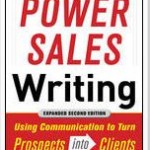Guest Post: “Doctoring the Books—the Right Way”
Laura Matthews is an insightful and detail-oriented book doctor. I’ve seen her in action in my writing group. I also know one of her satisfied financial advisor clients. I’m delighted that Laura shares her perspective on book doctoring in this guest post.
Doctoring the Books–the Right Way
By Laura Matthews

“Book doctor.” Sounds intimidating. Like your worst nightmare English teacher from high school, the one who x’ed out entire paragraphs in red ink and wrote, “This paper is a rudderless boat,” under a large, scrawling “D.”
Been there.* So when I’m working with an author, I try to be as opposite as possible. In the close to 500 books I’ve edited, it’s always been my goal to encourage authors with positive feedback and storytelling savvy that enhances their material and makes it more engaging. The writer is the idea-generator; the book doctor hones that idea to razor sharpness.
A good book doctor, otherwise known as an editor, will find the gems in your work and help you polish them to a shining gleam. No matter where you are in the process—an idea, an outline, a first draft, or a thoroughly crafted manuscript—a book doctor can take you to the next level of fine-tuning and crafting the final product.
Surprisingly, the book doctor doesn’t need to be an expert in your field to be a good match. After all, if you’ve written a book, you’re the expert already. What you need is someone to let you know if your expertise is understandable to the lay person. One of the defining traits of editors is an insatiable desire to know everything. (I get closer every day.) They are curious about all kinds of topics and want to dig deep to understand them. It’s almost better when they don’t know everything about your topic; they can then bring fresh eyes to it and more effectively represent the reader. Some familiarity with the specific vocabulary of your field, though, is helpful.
What do book doctors do?
When you bring your manuscript to a book doctor for evaluation, you’ll probably get one of three recommendations:
- If the book is in good shape already, the editor might suggest a copy edit or proofread, to ensure there are no errors in the text itself. This type of edit covers spelling, punctuation, grammar, etc.—the mechanics of the text. If an editor suggests this right off the bat, congratulations! You’ve done an excellent job already of putting the book together.
- If the book is basically sound structurally but has phrasing or clarity issues, it may need a deeper line edit to smooth language, organize paragraphs, trim extra words, etc. The editor would strive to retain your voice while still ensuring the writing is clean, succinct, and understandable to the lay person.
- If the book has a great core concept but some organizational and structural issues, the editor might suggest a revision, which you could do with the editor’s guidance or the editor could do for you. In this type of edit, the editor connects to your ultimate vision for the project, and then does the heavy lifting for you in crafting the manuscript to your specifications without you having to be a writing expert. That’s the real expertise of the editor—crafting the written word itself.
These different levels of editing would most likely be charged at different rates, depending on the book doctor, their experience, and their availability. Some charge by the hour, others by the word count. But this is not the place to skimp before publishing or shopping your book around—one of the most common complaints today about self-published books, for example, is the carelessness or non-existence of the editing. The reader can spot it instantly. Also, many publishers are now requiring authors to have the editing done before submission. Editing is essential—don’t let your book go out without it.
The editor may have some general knowledge about what will be marketable to your audience, but your expertise will be the final word on that. You know your target market and what they need; the editor will help you say what you want to say to reach the audience you specify.
What to look for in a book doctor
Many people have strong editing skills on the page, but the bigger consideration, to me, is the personalities of the two players. Chat on the phone with the book doctors you’re considering. Do you like them? Does it seem like they like you, and are they excited about the concept of your book? You may not spend any more time with them on the phone because much of the work can be done via email, but that first verbal contact (or face-to-face if possible) is a great way to establish the tone of the working relationship.
I’ve found that the best match of author to editor comes when their communication styles coordinate. Asking something as simple as, “Do you like contact via email or phone call?” can make or break an editing relationship. Most editors these days work in Microsoft Word, using the track edits and comments, so this is another consideration. If you’re comfortable with these features, the flow of editing will be much easier.
Another important quality in an editor is diplomacy. You, as the writer, don’t have to be diplomatic, but you’ll sure notice if your editor isn’t. Editors by definition are professional criticizers, so unless they’ve learned how to give the critique with respect and empathy, it can be rough to work with them. Try to find someone who can say the tough things in a kind way. You could even ask for references to attest to this quality.
Will the book doctor find you an agent?
While it might be tempting to go with a book doctor who claims they can also get your book to market or find a publisher, I’d be wary of this promise. Editing is a particular skill set, in which the editor becomes closely involved with the words on the page at the micro level. This skill involves an eagle eye for flaws and a sharp ear for language, and takes some time to develop and hone.
Most likely, those who have become excellent editors haven’t also developed the equally demanding macro skills of marketing and sales. I do not, myself, offer any publishing services nor have I developed contacts in that direction—I focus on getting the manuscript to the best place possible, so that you, the author, can shop it for agents, find a publisher, or self-publish on your own with confidence.
Go for it!
Writing a book is the hard part. Once you’ve done that, get the right professionals on your team to bring it to industry standard. You’ll need an engaging cover, an attractive and readable layout for the interior pages, and, most importantly (in my opinion!), a strong edit. These are essential for making your book the best it can be. Then, cha-ching!, you can rack up those sales.
*I did, indeed, earn the “rudderless boat” comment on a theme paper in high school. I bear the scars to this day.
Laura Matthews of www.thinkStory.biz has thirty-plus years of working with hundreds of authors from around the globe—yet, she still doesn’t know everything. Let her edit your book so she can get that much closer to omniscience. To see how that’s going, follow her on Twitter at: @thinkStory.




I can give Laura a HUGE endorsement — she was the copy editor for my two novels, and she did a great job. Great post with great tips…choosing the right book doctor is an important task!
“Surprisingly, the book doctor doesn’t need to be an expert in your field to be a good match.”
This is a great point Laura. When we worked together, you were able to flush out a lot of unanswered questions that I assumed people may know because I’m too wrapped up in the personal finance world.
Laura is a fantastic editor!
Thank you, Chuck! I’m so glad you had a great experience with Laura as your book doctor.